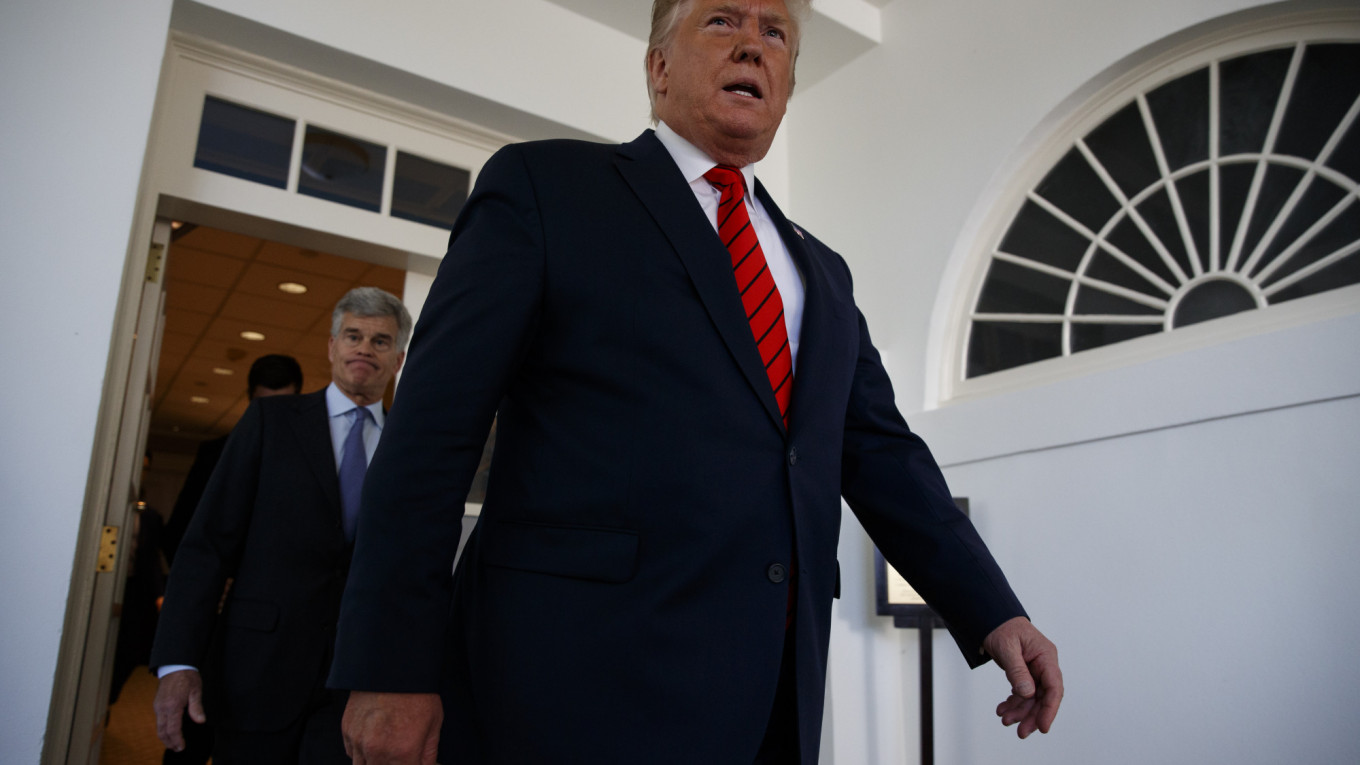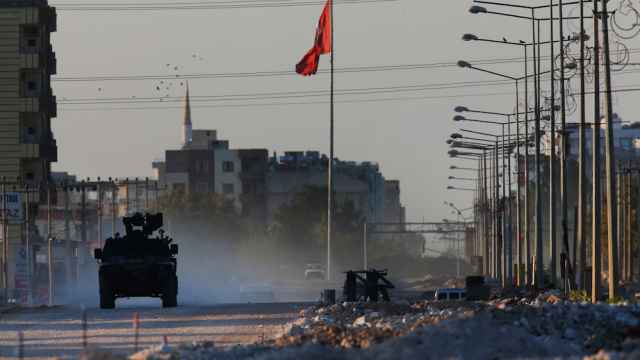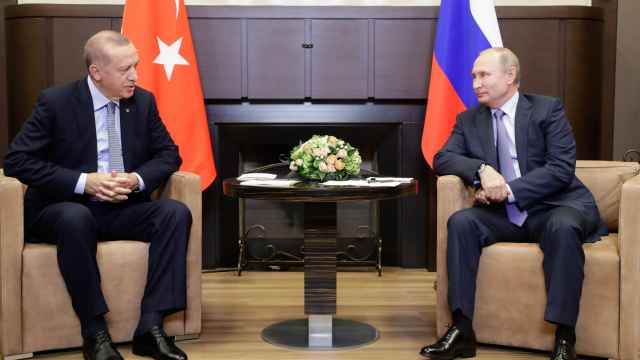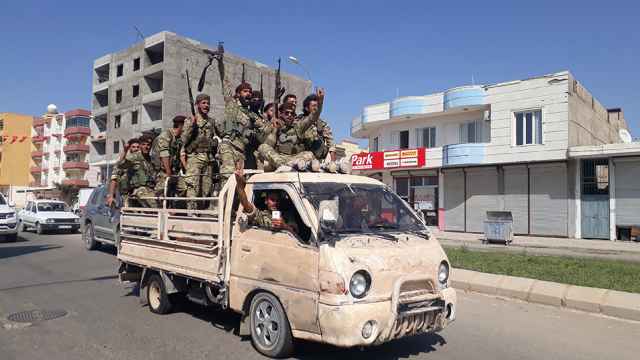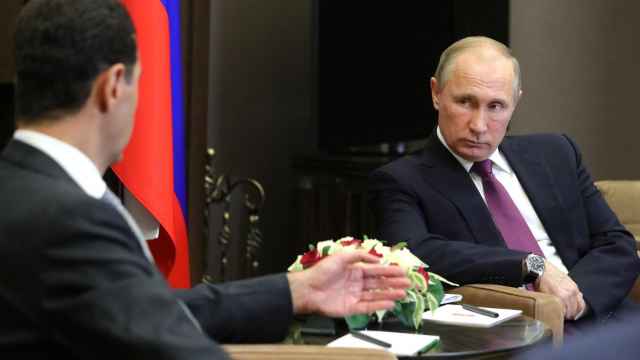The Trump administration dispatched its top officials to Turkey on Wednesday for emergency talks to try to persuade Ankara to halt an assault on northern Syria, while Russian troops swept into territory abandoned by Washington in a sudden retreat.
Robert O'Brien, White House national security adviser since last month, arrived in Turkey aiming to meet Foreign Minister Mevlut Cavusoglu on Wednesday. Vice President Mike Pence and Secretary of State Mike Pompeo are expecting to meet the following day with President Tayyip Erdogan.
The administration is trying to contain the fallout from Erdogan's decision to send forces last week to attack Syrian Kurdish militia that were Washington's close allies.
Acting last week after a phone call with Erdogan, President Donald Trump swiftly upended five years of U.S. policy with his unexpected decision to withhold protection from Syria's Kurds.
Erdogan has insisted there will be no ceasefire, and said he might call off a visit to the United States next month because of the "very big disrespect" shown by U.S. politicians.
He also denounced Washington for taking the "unlawful, ugly step" of imposing criminal charges against a Turkish state bank over charges it broke sanctions on Iran.
Syrian government troops accompanied by Russian forces meanwhile entered the city of Kobani, a strategically important border city and a potential flashpoint for a wider conflict, the UK-based Syrian Observatory for Human Rights, which monitors the eight-year-old Syrian war, reported.
Their reported arrival follows a deal cut between the Kurdish-led Syrian Democratic Forces militia, which has controlled the city, and Damascus to deploy the Syrian army in border areas to help fend off the Turkish offensive.
Turkey's assault forced Washington to abandon a strategy in place for five years and pull its troops from northern Syria.
It has spawned a humanitarian crisis, with 160,000 civilians taking flight, a security alert over thousands of Islamic State fighters abandoned in Kurdish jails, and a political maelstrom at home for Trump, accused by congressional leaders, including fellow Republicans, of betraying loyal U.S. allies, the Kurds.
Syrian government forces, backed by Washington's adversaries Russia and Iran, have meanwhile taken advantage of the power vacuum left by retreating U.S. troops to advance swiftly into the largest swath of territory previously outside their grasp.
Trump played down the crisis on Wednesday, saying the conflict was between Turkey and Syria and that it was "fine" for Russia to help its ally Damascus. Sanctioning Turkey would be better than fighting in the region, he said.
Washington announced sanctions to punish Turkey on Monday, but Trump's critics said the steps, mainly a steel tariffs hike and a pause in trade talks, were too feeble to have an impact.
A day later U.S. prosecutors' charges were unveiled against Turkey's majority state-owned Halkbank for taking part in a scheme to evade Iran sanctions. Washington says the case is unrelated to politics. Halkbank denies wrongdoing and called the case part of the sanctions against Turkey.
Erdogan's spokesman said Turkey's foreign ministry was preparing retaliation for U.S. sanctions.
U.S. "show of force"
The Turkish advance, and Washington's need to swiftly evacuate its own forces, have brought the two biggest militaries in NATO close to confrontation on the battlefield. Washington has complained about Turkish artillery fire near its troops.
In the latest potential flashpoint, U.S. military aircraft made a "show of force" over Kobani after Turkish-backed fighters came close to American troops there, a U.S. official said.
Pence said Erdogan had promised Trump by phone that Turkey would not attack Kobani, where U.S. forces first came to the aid of Kurds against Islamic State, which massacred Kurdish civilians there in 2014.
Erdogan said he had not broken his promise to Trump: "Mr Trump's remark on Kobani was 'Don't strike there'," Erdogan told reporters late on Tuesday. "We said that we had only done an encircling operation there at the moment."
Land rush
Washington's hasty exit has created a land rush between Turkey and Russia - now the undisputed foreign powers in the area - to partition the formerly U.S.-protected Kurdish area.
The Syrian Observatory for Human Rights said Russian troops had crossed the Euphrates River to advance to Kobani's outskirts.
Lebanon's al-Mayadeen TV reported that Russian-backed Syrian forces had also set up outposts in Raqqa, the one-time capital of Islamic State's caliphate, which the Kurds captured in 2017 at the peak of their campaign with U.S. support.
Hours after Washington announced its pullout on Sunday, the Kurds made a rapid deal with Washington's adversaries, the Russia- and Iran-backed government of President Bashar al-Assad.
Russia-backed Syrian troops have swiftly moved across the breadth of the Kurdish-held area including Manbij city, a target of Turkey which U.S. forces said on Tuesday they had quit.
Reuters journalists travelling with Syrian government forces on Tuesday entered Manbij and saw Russian and Syrian flags on buildings nearby. Russian state media said on Wednesday Syrian government forces had occupied bases abandoned by U.S. troops.
Erdogan, due in Moscow later this month, said he had told President Vladimir Putin that Russia could move forces into Manbij, provided that the Kurdish YPG militia was cleared out.
Erdogan says Trump approved his plan for a "safe zone" about 30 kilometers (20 miles) inside Syria. Trump says he did not endorse the plan but Washington could not stay to police the Middle East.
"They say 'declare a ceasefire.' We will never declare a ceasefire," Erdogan told reporters. "Our goal is clear. We are not worried about any sanctions."
The U.N. Security Council said it was concerned by the risks of a deterioration in the humanitarian situation in northeast Syria and the escape of Islamic State fighters, but made no reference to the Turkish assault.
The Turkish campaign shows no sign of abating on the ground, with most fighting so far around two border cities, Ras al Ain and Tel Abyad.
Islamic State is a terrorist organization banned in Russia.
A Message from The Moscow Times:
Dear readers,
We are facing unprecedented challenges. Russia's Prosecutor General's Office has designated The Moscow Times as an "undesirable" organization, criminalizing our work and putting our staff at risk of prosecution. This follows our earlier unjust labeling as a "foreign agent."
These actions are direct attempts to silence independent journalism in Russia. The authorities claim our work "discredits the decisions of the Russian leadership." We see things differently: we strive to provide accurate, unbiased reporting on Russia.
We, the journalists of The Moscow Times, refuse to be silenced. But to continue our work, we need your help.
Your support, no matter how small, makes a world of difference. If you can, please support us monthly starting from just $2. It's quick to set up, and every contribution makes a significant impact.
By supporting The Moscow Times, you're defending open, independent journalism in the face of repression. Thank you for standing with us.
Remind me later.


